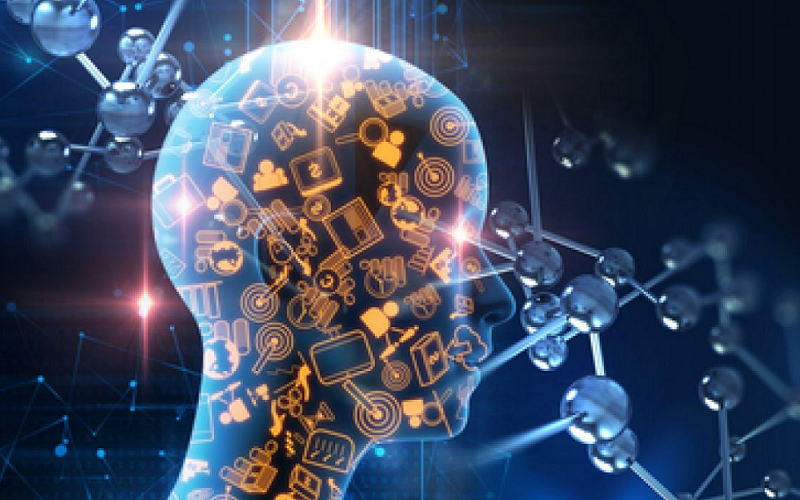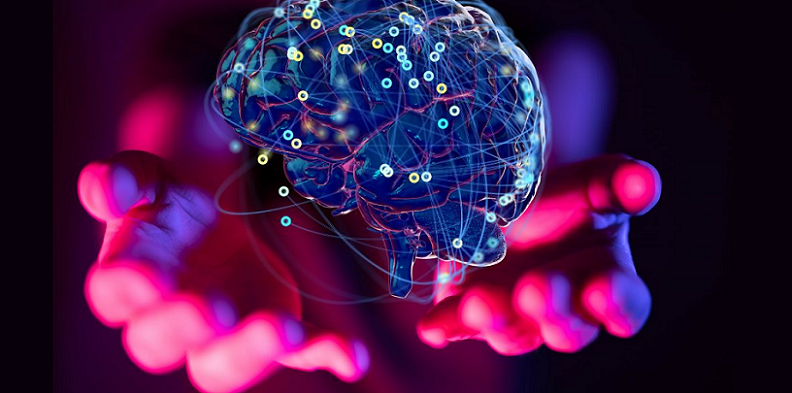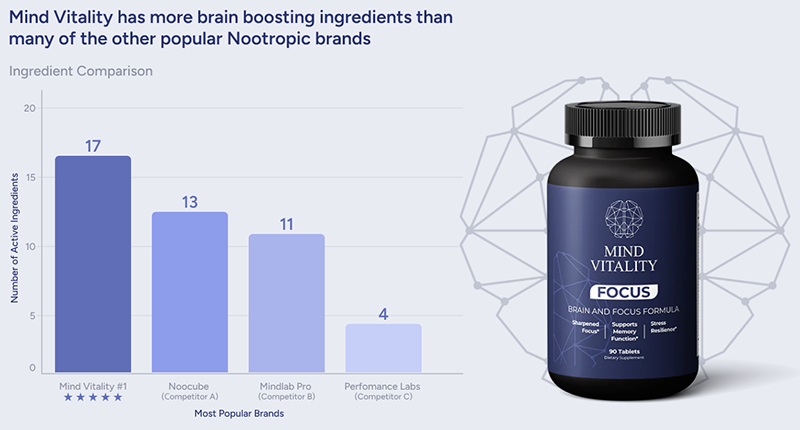
In today’s rapidly evolving digital landscape, the intersection of artificial intelligence (AI) and health has become an area of burgeoning interest and immense potential. Cognitive health, which encompasses our ability to think, learn, remember, and reason, plays a pivotal role in our overall well-being. As concerns grow about cognitive decline — whether due to aging, disease, or other factors — the search for innovative solutions intensifies. Enter the world of nootropics, compounds touted to enhance cognitive performance, and AI, a technology with the promise to revolutionize how we understand and address cognitive health.
Contents
- Introduction to Artificial Intelligence (AI) and Cognitive Decline
- The Basics of Nootropics
- The Intersection of AI and Nootropics
- AI in Predicting Cognitive Decline
- AI in Preventing Cognitive Decline
- References
Introduction to Artificial Intelligence (AI) and Cognitive Decline
As our world continues to advance at an unprecedented pace, the blend of technology and health has ignited a revolution in how we approach well-being. At the center of this evolution is the arena of cognitive health, a domain integral to our daily experiences, successes, and quality of life. Cognitive health pertains to the spectrum of our mental processes, from the basic memory recall of everyday tasks to complex reasoning and problem-solving abilities. Its decline, whether gradual due to aging or precipitated by conditions like Alzheimer’s, can profoundly impact an individual’s autonomy and vitality.
Definition of Cognitive Health
Cognitive health, in essence, refers to the health of our “thinking brain.” It encapsulates functions like memory, attention, perception, learning, decision-making, and problem-solving. A cognitively healthy brain can perform these functions efficiently, allowing us to navigate our daily lives with ease, make informed decisions, and interact meaningfully with our environment and those around us.
Importance of Predicting and Preventing Cognitive Decline
The effects of cognitive decline are far-reaching. Beyond the personal challenges an individual may face, there are broader societal implications, from increased caregiving burdens to the economic strain on healthcare systems. Early prediction and prevention are paramount. Not only can they lead to better individual outcomes and improved quality of life, but they also hold the potential to mitigate broader social and economic impacts.
As the global population ages and lifespans increase, the prevalence of cognitive decline and associated disorders is expected to rise. Thus, the quest for effective interventions and predictive measures becomes all the more urgent [1].
Introduction to Artificial Intelligence (AI) and Its Role in Cognitive Decline
Artificial Intelligence, often simply referred to as AI, is a domain of computer science dedicated to creating systems capable of performing tasks that would typically require human intelligence. These tasks include pattern recognition, decision-making, language understanding, and forecasting. In the realm of cognitive health, AI has emerged as a beacon of hope. With its unparalleled data processing capabilities, AI offers the potential to not only detect early signs of cognitive decline but also to chart out personalized preventive strategies, a topic we’ll delve deeply into as we journey through this post.
The Basics of Nootropics
As we journey into the realm of cognitive enhancement and protection, a key player that emerges is nootropics. These “smart drugs” or cognitive enhancers have garnered significant attention in recent years, both for their promise and the debates surrounding their efficacy and safety.
Definition of Nootropics
The term “nootropic” was coined in 1972 by Dr. Corneliu E. Giurgea, a Romanian psychologist and chemist. He derived the term from the Greek words “nous” meaning “mind” and “tropein” meaning “to bend or turn.” In essence, nootropics are substances designed to bend or turn the mind towards enhancement.
The Role of Nootropics in Cognitive Enhancement
Nootropics can be categorized into several classes based on their origin, mechanism of action, and benefits. They range from synthetic compounds like modafinil, known for its wakefulness-promoting properties, to natural substances like ginkgo biloba and Bacopa monnieri, traditionally used in herbal medicine for cognitive enhancement.
The primary goals of nootropics include:
- Improving Memory: This includes both short-term working memory and long-term recall.
- Enhancing Focus and Attention: Nootropics may help users maintain concentration on tasks, especially over extended periods.
- Boosting Mental Energy: By optimizing neurotransmitter levels or improving blood flow to the brain.
- Promoting Neuroplasticity: The ability of the brain to adapt, grow, and form new neural connections.
- Mood Enhancement: Some nootropics can influence mood-regulating neurotransmitters, providing anxiolytic or anti-depressant effects.
Current Research and Promising Compounds in Cognitive Decline
As the interest in nootropics continues to rise, so does scientific inquiry into their efficacy. While some compounds have a long history of traditional use, rigorous scientific studies on many nootropics are still in the nascent stages [2].
Some of the most researched and promising nootropics include:
- L-Theanine: Often found in tea leaves, this amino acid is known for promoting relaxation without causing drowsiness. When combined with caffeine, it can enhance attention and cognitive performance.
- Rhodiola Rosea: An adaptogen that may help combat fatigue and improve mood.
- Noopept: A peptide-derived compound that has potential neuroprotective properties.
- Phenylpiracetam: A derivative of piracetam, it is believed to boost cognition and may have potential benefits for physical performance.

The Intersection of AI and Nootropics
While nootropics represent the tangible, ingestible side of cognitive enhancement, AI brings a layer of technology, offering unprecedented insights into the human brain and the efficacy of various compounds. When combined, AI and nootropics have the potential to pave the way for hyper-personalized cognitive health strategies. Let’s dive deeper into how AI is reshaping our understanding and application of nootropics.
Overview of How AI is Used in Pharmaceutical Research
The pharmaceutical world has been revolutionized by the infusion of artificial intelligence in multiple facets of drug development and research. AI is instrumental in:
- Drug Discovery: AI can process vast datasets, analyzing complex biochemical interactions. This speeds up the process of identifying potential new drugs or repurposing existing ones for different conditions.
- Clinical Trial Optimization: AI algorithms can predict which patients are most likely to benefit from specific treatments, leading to more targeted and efficient trials.
- Predictive Analysis: By sifting through massive amounts of data, AI can predict potential side effects or drug interactions, enhancing safety profiles.
- Personalized Medicine: Using genetic and other biometric data, AI can suggest the most effective treatments for individual patients.
- Predict Individual Responses: Before even trying a nootropic, AI might be able to forecast how effective it will be for a given person.
- Optimize Dosing: By analyzing data, AI can suggest optimal doses that maximize benefits while minimizing potential side effects.
- Combine Compounds: AI can predict synergistic effects between various nootropics, leading to more effective “stacks” or combinations.
- Genetic Insights: Someone with a genetic predisposition to lower dopamine might benefit from a nootropic that enhances dopamine activity.
- Lifestyle Adjustments: If AI detects sleep irregularities, it might suggest nootropics that support circadian rhythms or enhance sleep quality.
- Continuous Feedback Loop: As users report their experiences and outcomes, AI algorithms learn and refine their recommendations, ensuring an evolving and adaptive approach to cognitive enhancement.
- In the realm of nootropics, AI can refine our understanding of how different compounds affect diverse populations, potentially leading to more tailored and effective cognitive enhancement strategies.
Predictive Algorithms for Nootropic Efficacy
One of the challenges in the world of nootropics is the variance in individual response. What might work excellently for one person might have muted or even counterproductive effects on another. This is where AI’s predictive algorithms come into play.
Using vast datasets that incorporate genetic information, lifestyle factors, and individual brain chemistries, AI can:
AI in Personalized Nootropic Recommendations
Beyond broad populations, AI’s true potential lies in its ability to offer personalization. By integrating data from wearables, genetic testing, and even brain scans, AI platforms can now recommend highly individualized nootropic regimens.
For instance:

AI in Predicting Cognitive Decline
Early detection is a cornerstone in the management of many health conditions, and cognitive decline is no exception. While nootropics offer potential interventions, the true power of proactive health care lies in our ability to predict and consequently prevent. Artificial Intelligence, with its ability to analyze vast and intricate datasets, holds promise in revolutionizing early detection of cognitive health challenges.
Cognitive Decline Early Detection and Prediction Models
While traditional methods for detecting cognitive decline, such as neuropsychological tests, are useful, they often identify issues only once they’ve become pronounced. AI, on the other hand, offers the promise of much earlier detection.
Brain Imaging Analysis
AI can process and analyze MRI and PET scans to identify subtle patterns or changes that might indicate the beginnings of conditions like Alzheimer’s, often long before clinical symptoms manifest [3].
Voice Analysis
Emerging research suggests that changes in speech patterns, even subtle ones, might be early indicators of cognitive decline. AI can analyze countless hours of speech to detect these minuscule changes.
Behavioral Patterns
Using wearables and smart home devices, AI can detect shifts in daily routines or movements that might correlate with cognitive challenges.
Role of Genetic and Lifestyle Factors in Cognitive Decline
Genetics play an undeniable role in cognitive health, but so do lifestyle factors such as diet, sleep, physical activity, and mental engagement. AI has the power to integrate all these variables to provide a comprehensive risk profile.
Genetic Risk Profiling
By analyzing an individual’s genome, AI can pinpoint genetic markers associated with higher risks of conditions like Alzheimer’s or Parkinson’s.
Lifestyle Impact Assessment
By integrating data from wearables, mobile apps, and medical records, AI can assess how lifestyle choices may accelerate or mitigate genetic risks.
Predictive Lifestyle Recommendations
Based on this integrated data, AI can suggest lifestyle modifications tailored to an individual’s genetic and behavioral profile [4].
Advantages of AI Techniques Over Traditional Methods in Lessening Cognitive Decline
While traditional methods remain invaluable, AI-driven techniques offer several advantages in the arena of cognitive health prediction.
Proactive vs. Reactive
AI allows for proactive strategies, addressing potential issues well before they become symptomatic.
Personalization
Instead of a one-size-fits-all approach, AI provides highly tailored recommendations based on genetics, lifestyle, and even personal preferences.
Scalability
AI algorithms can assess millions of data points across vast populations, allowing for large-scale screenings that would be infeasible with traditional methods.
Dynamic Adaptation
As more data becomes available and as individuals’ health and lifestyles evolve, AI models can adapt and refine their predictions and recommendations.

AI in Preventing Cognitive Decline
Having explored AI’s remarkable capabilities in predicting cognitive challenges, it’s essential to pivot to perhaps the most hopeful and proactive aspect: prevention. After all, prediction is only as powerful as the actionable insights it can offer. The union of AI and preventive strategies could reshape the trajectory of cognitive health for millions, transforming predictions into tangible, positive outcomes.
Personalized Cognitive Training Programs
One of the proactive approaches to preserving cognitive health is through cognitive training or “brain exercises.” While generalized training programs have shown mixed results, AI has the potential to elevate their efficacy.
Adaptive Learning
AI can create dynamic programs that adapt in real-time, adjusting difficulty and tasks based on an individual’s performance, ensuring optimal challenge and engagement [5].
Focused Interventions
By identifying specific cognitive weaknesses or vulnerabilities, AI can tailor exercises to bolster those particular areas, be it memory, attention, or problem-solving.
Feedback and Progress Tracking
AI can provide immediate feedback, tracking progress over time and modifying interventions as needed.
Dietary and Supplement Recommendations
Diet plays a crucial role in cognitive health. AI, integrated with insights from genomics and individual health profiles, can offer highly personalized dietary advice.
Nutrient Profiling
AI can assess an individual’s diet, highlighting potential deficiencies or areas of improvement linked to cognitive health.
Supplement Suggestions
For those who might benefit from nootropic or other supplements, AI can suggest optimal types, combinations, and dosages based on individual profiles.
Dietary Patterns and Cognitive Health
By analyzing vast datasets, AI can identify dietary patterns most associated with cognitive longevity, tailoring recommendations accordingly.
Lifestyle Modifications and Monitoring
Beyond diet, various lifestyle factors influence cognitive health. AI’s ability to integrate diverse data points can lead to holistic recommendations.
Sleep Optimization
Recognizing the profound impact of sleep on cognition, AI can analyze sleep patterns and suggest modifications, from optimal sleep durations to interventions for sleep disturbances.
Physical Activity
AI can recommend exercise regimens tailored to an individual’s physical capabilities, preferences, and cognitive health needs.
Stress Reduction
Stress is a notable antagonist to cognitive well-being. AI can suggest personalized stress-reduction techniques, from meditation styles to biofeedback exercises.
Continuous Evaluation and Adjustment
One of AI’s standout advantages is its iterative nature. Prevention isn’t a static process but an evolving journey.
Real-time Feedback Loops
As individuals follow recommendations, AI can assess the impact, adjusting advice based on real-world outcomes.
Integration of New Research
As the field of cognitive health evolves, AI can seamlessly integrate new findings, ensuring recommendations remain cutting-edge.
User Engagement
AI can send reminders, motivation boosts, and progress updates, ensuring users remain engaged and proactive in their cognitive health journey.
References
[1] Artificial Intelligence for Cognitive Health Assessment: State-of-the-Art, Open Challenges and Future Directions
[2] Artificial Intelligence Approaches to Predicting and Detecting Cognitive Decline in Older Adults
[3] AI Could Predict Cognitive Decline Leading to Alzheimer’s Disease
[4] Artificial intelligence for dementia prevention
[5] Mount Sinai Researchers Use Artificial Intelligence to Uncover the Cellular Origins of Alzheimer’s Disease and Other Cognitive Disorders

